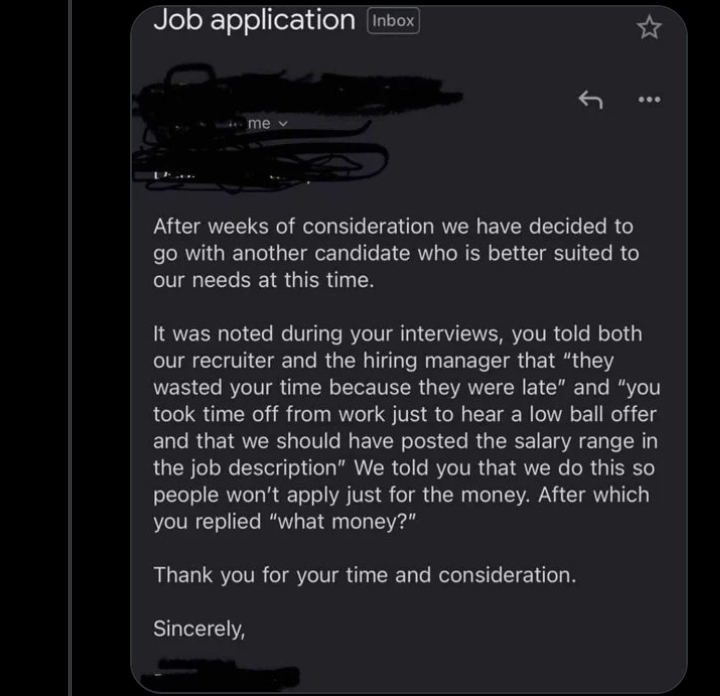
-
By:
- David Kedode
- No comment
- Tags: AI, AI Tools, HR, Human Resource, Job Applications, Job Interviews, Job Seekers
The Truth About Job Interviews: Honesty, Transparency, and the Role of AI
In the world of job seeking, navigating the labyrinth of interviews, cover letters, and CVs can be a daunting task. From crafting the perfect resume to impressing recruiters in interviews, job seekers often find themselves striving to present their best selves. However, the process is not always as straightforward as it should be. Recent experiences and opinions have shed light on the complex dynamics that underscore the job application process, highlighting both the challenges faced by job seekers and the ways in which honesty and transparency can sometimes be overshadowed by unprofessional practices.

The use of AI in creating CVs and cover letters has sparked discussions about its impact on the job application process. Concerns have arisen about whether AI-generated content can be detected, and if so, how this could impact the candidate’s chances. It’s true that AI, in its current form, lacks an intrinsic understanding of the nuances of various job roles and industries. Without a comprehensive dataset encompassing every conceivable job title and industry, AI may indeed struggle to generate tailor-made content that aligns perfectly with the job at hand. This raises valid questions about the extent to which we can fully rely on AI in this context.
However, this shouldn’t overshadow the positive aspects of AI’s role in job applications. AI-powered tools can assist job seekers in various ways, from identifying skills gaps to offering suggestions for improving CVs and cover letters. While they might not replace human expertise entirely, they can certainly be valuable aids in the process. Here are 9 Ways to Use AI in the Workplace
Honesty, truth, and transparency are values that should be at the core of every job application process. Unfortunately, instances of unprofessional behaviour can tarnish the experience for job seekers. The scenario of a candidate telling the recruiter and the hiring manager that their time was wasted and expressing frustration over salary negotiations illustrates the tension that can arise when the expectations of job seekers clash with those of recruiters. On one hand, job seekers deserve respect for their time and a clear understanding of what’s being offered. On the other hand, recruiters aim to find candidates who align with the company’s values and goals. Balancing these factors can be challenging, but open communication is crucial to ensuring both parties are on the same page.

Furthermore, the issue of job description accuracy and interview transparency is another aspect that requires attention. Job descriptions that lack critical details like salary ranges can be frustrating for candidates who invest time and effort only to find that the compensation falls short of their expectations. While companies may have valid reasons for omitting salary information, it’s essential to recognize that transparency can lead to more qualified and motivated candidates applying for the role. Moreover, conducting interviews when a decision has already been made can be disheartening for job seekers, especially considering the financial implications of the interview process.
In conclusion, the job application process is a multifaceted journey where candidates and employers strive to find the best fit. While AI has its limitations in generating contextually precise content, it can still play a supportive role in aiding job seekers. Honesty, truth, and transparency are essential values that need to be embraced by both job seekers and recruiters. A balance must be struck between showcasing one’s worth and respecting the mutual expectations of the hiring process. By striving for open communication, clarity in job descriptions, and ethical interview practices, we can create a more equitable and respectful job application experience for all parties involved.
